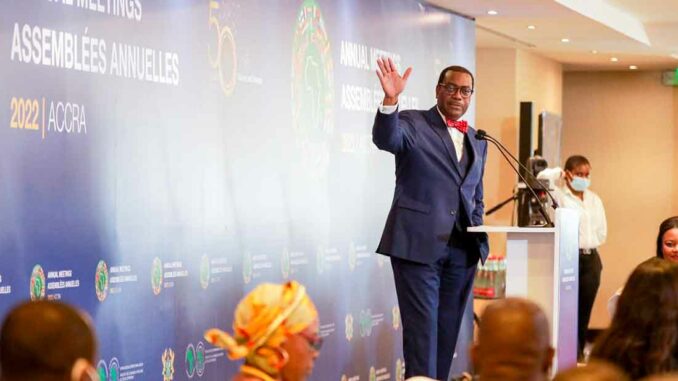
African Development Bank (AfDB) President Akinwumi Adesina has hailed Morocco’s commitment to renewable energies as “remarkable” and said that the bank wants to duplicate the kingdom’s experience in the Sahel countries.
Morocco has made remarkable progress in the field of renewable energy, Adesina noted at a press briefing on the sidelines of the AfDB Annual Meetings, held in Accra, under the theme “Fostering Climate Resilience and a Just Energy Transition for Africa” and cited the Noor Ouarzazate complex as one of the largest solar parks in the world that was co-financed by the AfDB.
He stressed that the AfDB wants to repeat the feat of this complex with the project “Desert to Power” which aims to provide energy to 250 million people in the countries that make up the Sahelian band using the energy sources available in abundance in the region.
With a necessary investment of $20 billion to finance power plants that produce electricity from clean sources, the goal of this project is to produce 10 GW.
The AfDB chief also outlined the Bank’s plans to address the looming food crisis threatening Africa as a result of the Ukraine-Russia war.
“I’m optimistic. Africa will not experience a food crisis. We have the means to overcome this challenge!” Adesina said. “Africa needs only to produce its own food. It should not have to be begging for food. There is no dignity in begging for food,” he added.
The President explained all the efforts made and results achieved in terms of resilient agriculture in East Africa, thanks to the Bank, especially in Sudan and Ethiopia, which have been able to avoid importing wheat thanks to record production of 650,000 tons. He highlighted the importance of the Technologies for African Agricultural Transformation (TAAT) program for African producers’ resilience.
He recalled the Bank Group’s Board of Directors had on Friday approved the $1.5 billion African Emergency Food Production Facility, developed by the institution to address the food crisis looming over Africa due to the Russia-Ukraine conflict.
The facility will provide agricultural seeds to 20 million African producers. The varieties include wheat, maize, rice and soybeans. The objective is to produce an additional 38 million tons of food and to generate $12 billion in value over the next two years.
He also touched on climate change, the other challenge facing the continent, whose effects are devastating.
Africa is suffering annual losses from the effects of climate change in the range of $7 billion to $15 billion and this figure will stand at $50 billion by 2040. It will, therefore, take $1.6 trillion between 2020 and 2030 to combat the effects of climate change in Africa. However, the continent does not receive enough funding to cover its needs. African receives only 3% of global climate funding, he deplored.
He also vowed that the bank will no longer finance coal, as part of its policies in the fight against climate change.
the AfDB meetings are held in Accra from 23 to 27 May.
